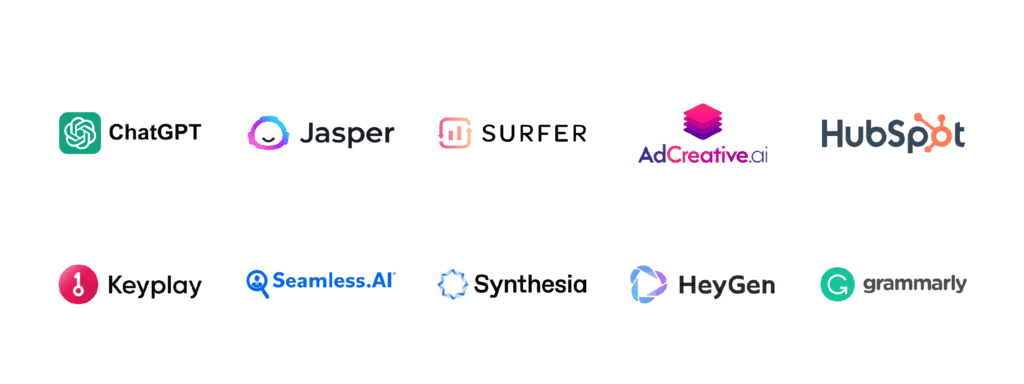Open Effectiveness and Development With AI Automation for B2B Companies
AI automation is transforming the landscape for B2B business. It streamlines operations and lowers reliance on human treatment. This change enables businesses to make quicker, data-driven choices. As companies check out which refines to automate, they have to also think about the right devices to apply. Challenges stay in embracing AI modern technology. The effects of these changes can shape the future of many business in ways yet to be fully recognized
Recognizing AI Automation in the B2B Context
As businesses significantly look for effectiveness, comprehending AI automation in the B2B context comes to be essential. AI automation involves utilizing advanced technologies to improve procedures, decrease human intervention, and improve decision-making processes. In the B2B landscape, this can materialize in numerous types, such as automating customer support interactions, managing supply chain logistics, or enhancing advertising and marketing projects. Firms can utilize AI to evaluate massive datasets rapidly, allowing them to determine patterns and understandings that educate tactical choices. Moreover, AI systems can incorporate perfectly with existing innovations, giving a natural system for managing organization features. This understanding lays the groundwork for companies to discover how AI can change their operations, improve productivity, and inevitably foster lasting growth in a competitive market.
Secret Advantages of Carrying Out AI Automation

Recognizing Procedures Ideal for Automation

Selecting the Right AI Devices for Your Service
When B2B business consider automating their processes, choosing the best AI tools ends up being vital for attaining preferred results. Firms must start by evaluating their distinct requirements and purposes, ensuring positioning with service objectives (AI Automation For B2B). Assessing the combination, versatility, and scalability capacities of prospective tools is critical, as these factors figure out long-lasting performance. Organizations ought to additionally take into consideration user-friendliness and the degree of assistance provided by vendors, as these elements can influence successful execution. In enhancement, examining customer reviews and study can give insights right into just how particular AI options do in real-world situations. By thoroughly picking AI tools that fit their functional needs, B2B firms can enhance effectiveness and drive development while lessening potential disturbances
Getting Over Difficulties in AI Adoption
B2B business frequently encounter considerable obstacles in taking on AI innovations, especially problems associated to data high quality and resistance to transform monitoring. Poor information quality can prevent the efficiency of AI systems, while worker hesitation to welcome new processes can delay execution efforts - Growth Systems For B2B. Resolving these obstacles is important for successful AI integration and maximizing its potential advantages
Data Quality Issues
Ensuring high information high quality is important for the effective fostering of AI technologies in business-to-business settings. Imprecise, incomplete, or out-of-date information can seriously prevent AI initiatives, causing incorrect insights and bad decision-making. Business often encounter challenges such as information silos, inconsistencies throughout various resources, and a lack of standardized data layouts. To conquer these problems, organizations have to buy data cleansing, integration, and governance processes. Applying robust information monitoring methods assures that the information fed into AI systems is dependable and appropriate. Furthermore, fostering a society of data top quality awareness among employees can enhance data accuracy gradually. By addressing data quality concerns, B2B companies can release the full capacity of AI automation, driving performance and growth.
Modification Monitoring Resistance

Gauging the Influence of AI Automation
Determining the impact of AI automation in B2B business calls for a clear understanding of key efficiency Minarik AI indications (KPIs) that line up with company purposes. Reliable data evaluation strategies are important for interpreting the results, while durable ROI assessment techniques aid determine the economic advantages of automation initiatives. Together, these parts supply a considerable framework for assessing AI's contributions to business success.
Trick Efficiency Indicators
Key performance signs (KPIs) act as important devices for B2B companies to analyze the effectiveness of AI automation initiatives. By developing clear metrics, organizations can gauge improvements in functional performance, cost reduction, and profits development directly attributable to automation. Usual KPIs consist of cycle time reduction, error rates, consumer fulfillment ratings, and staff member productivity levels. These indications provide understandings into just how AI systems are optimizing processes and improving general performance. Additionally, tracking KPIs allows firms to identify areas for additional improvement and to align AI automation efforts with strategic organization goals. Ultimately, a well-defined framework of KPIs assurances that B2B companies can quantitatively assess the influence of AI automation on their operations and drive continuous growth.
Data Analysis Strategies
Effective data analysis strategies play an important role in evaluating the impact of AI automation within B2B firms. By making use of analytical techniques, companies can recognize trends and patterns in operational data, allowing them to evaluate the effectiveness gains achieved through automation. Techniques such as regression evaluation and time series projecting give understandings into exactly how AI-driven procedures affect efficiency and decision-making. Furthermore, data visualization devices can properly interact searchings for to stakeholders, assisting in informed strategic choices. Maker discovering algorithms can better improve analysis by forecasting future end results based upon historical data, providing workable understandings. Eventually, these methods make it possible for B2B firms to determine success and optimize their AI automation efforts, making certain placement with organization objectives and boosting general efficiency.
ROI Analysis Methods
Examining the return on financial investment (ROI) of AI automation is vital for B2B business seeking to understand the economic ramifications of their technological efforts. Companies can utilize different ROI analysis approaches to evaluate the efficiency of AI executions - AI Automation For B2B. One reliable technique includes calculating cost savings by comparing operational costs before and after automation (Minarik AI). Additionally, determining efficiency renovations with crucial performance indicators (KPIs) helps evaluate the benefits of AI. Customer satisfaction metrics can additionally offer understandings right into the influence of automation on solution top quality. To ensure a comprehensive assessment, business must think about both direct monetary returns and intangible benefits, such as enhanced decision-making capabilities and competitive benefit. This complex evaluation allows B2B companies to make educated choices pertaining to future financial investments in AI technology
Future Patterns in AI Automation for B2B Firms
What innovations lie in advance for AI automation in B2B business? Emerging trends suggest a considerable change in the direction of boosted data analytics abilities, enabling companies to make more educated choices. Predictive analytics will end up being increasingly necessary, enabling companies to anticipate market adjustments and client needs. Additionally, the integration of AI with Internet of Things (IoT) modern technology is expected to streamline operations by providing real-time insights and automation of processes. Firms will additionally focus on enhancing client experiences through customized advertising driven by AI algorithms. Moreover, improvements in all-natural language handling will promote better interaction between customers and services. As these patterns evolve, B2B companies must adapt to take advantage of AI automation properly, ensuring sustained growth and competitive benefit.
Regularly Asked Inquiries
What Industries Benefit one of the most From AI Automation in B2B?
Manufacturing, financing, health care, and logistics sectors profit one of the most from AI automation in B2B. These sectors leverage AI to enhance procedures, boost decision-making, and boost overall operational performance, driving significant development and development.
How Does AI Automation Impact Employee Responsibilities and Responsibilities?
AI automation reshapes worker roles and responsibilities by simplifying recurring jobs, making it possible for employees to concentrate on strategic campaigns. This shift fosters ability growth, boosts productivity, and motivates cooperation, inevitably driving business development and technology.
What Prevail False Impressions About AI Automation in B2B?
Usual misunderstandings about AI automation in B2B include concerns of job loss, beliefs that AI can fully replace human judgment, and undervaluing the relevance of collaboration in between AI systems and staff members for perfect outcomes.
Just How Can Companies Make Sure Information Privacy With AI Automation?
Companies can ensure information personal privacy with AI automation by carrying out durable file encryption procedures, adhering to regulatory compliance, conducting regular audits, and training employees on data taking care of practices to mitigate dangers and secure delicate info.
What Are the Prices Connected With Executing AI Automation?
The costs related to applying AI automation consist of software acquisition, infrastructure upgrades, training personnel, continuous maintenance, and possible downtime during combination. Additionally, business might sustain expenditures associated with information safety and compliance actions.
Determining the effect of AI automation in B2B companies requires a clear understanding of key performance signs (KPIs) that align with business goals. Key performance indicators (KPIs) serve as necessary devices for B2B companies to assess the efficiency of AI automation efforts. Reliable data evaluation methods play a necessary role in evaluating the effect of AI automation within B2B firms. Assessing the return on financial investment (ROI) of AI automation is vital for B2B business seeking to comprehend the financial implications of their technological campaigns. What technologies lie ahead for AI automation in B2B business?